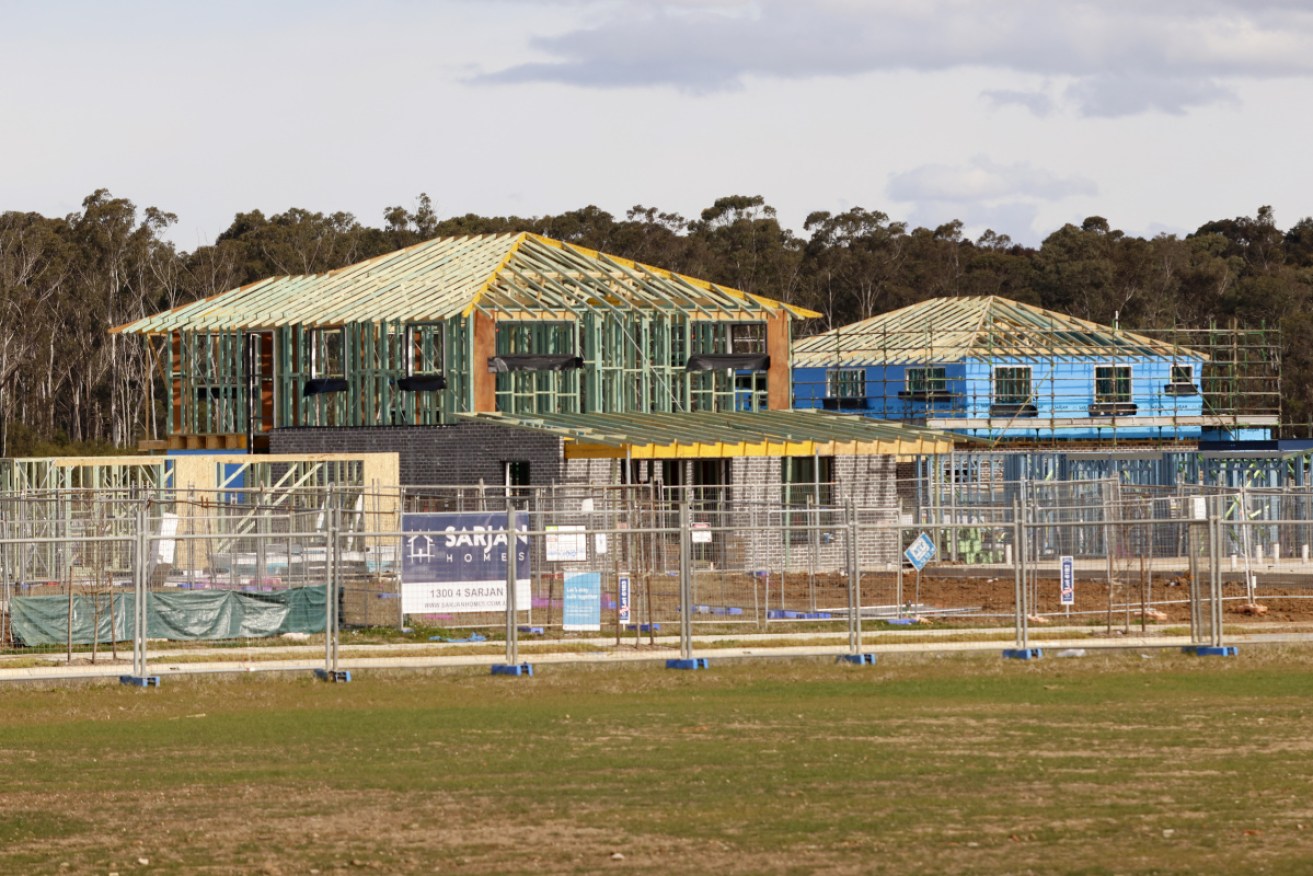House building approvals ease further


The government's decision to overhaul the building code could damage the economy, the industry warns. Photo: Getty
Approvals to build houses fell by a further 1.8 per cent in December, continuing a slide from the record peak in April in 2021.
The Australian Bureau of Statistics said private sector house approvals have now dropped 31.5 per cent since April.
“While approvals for private houses have fallen from all-time highs, the series remains at historically elevated levels, with the December result 20.5 per cent higher than the pre-pandemic level in December 2019,” ABS director of construction statistics Daniel Rossi said.
Overall approvals rose 8.2 per cent in December, driven by a 27.5 per cent increase in dwellings excluding houses.
Separate data on Thursday showed the construction industry suffered a slump over December and January due to the impact of the Omicron variant, continuing the sector’s volatile run over the past six months.
The Australian Industry Group-Housing Industry Association performance of construction index dropped 11.1 points to 45.9 over December and January, cutting short a recovery in November.
It was the weakest index result since August last year, with a reading below 50 indicating the sector is in contraction.
“This latest downturn was driven by disruptions to labour supply, material supplies and business and household confidence associated with the rapid spread of the Omicron strain,” Ai Group chief policy advisor Peter Burn said.
“Builders and constructors are hoping the reductions in COVID-19 infections evident over the past couple of weeks will ease some of the extra constraints evident over the past couple of months but they, like everyone else, are geared for further uncertainty and volatility.”
HIA economist Tom Devitt expects ongoing demand as part of the shift in homebuyer preferences towards more space and greater amenity will continue to keep builders busy into 2023.
However, Reserve Bank of Australia governor Philip Lowe warned on Wednesday that a rise in the cash rate later this year is “plausible”.
“The RBA’s first cash rate increase is expected to officially mark the end of the current boom,” Mr Devitt said.
Releasing the National Australia Bank business survey for the December quarter, its chief economist Alan Oster said the economy was showing considerable strength prior to the spread of the Omicron variant and that translated into a positive outlook for the coming months.
“We now know that Omicron has dampened that recovery somewhat but, fundamentally, we expect that positive trajectory to continue when the current virus outbreak recedes,” he said.
Over the quarter, the NAB business conditions index held steady at 12 points, but confidence rebounded sharply, up 20 index points to 18 points, as lockdowns were lifted in major states and vaccination rates hit key milestones.
Other ABS figures showed Australia’s monthly international trade surplus has narrowed further in December to $8.4 billion.
That compares with a revised $9.8 billion in November and a record $13.3 billion in July last year.
Exports rose one per cent in December, but were outpaced by a five per cent increase in imports.
– AAP








